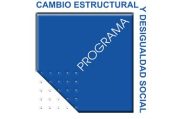Trends and changes in the social structure
The impact of social mobility processes in the horizons of consumption and political participation. An analysis of the Metropolitan Region of Buenos Aires (PICT-FONCyT cod. 2011-2189)
Summary:
The main objective of this research proposal is aimed at providing an answer to the problem of mobility and social inequality in a context of growth and democratic consolidation, to identify patterns of mobility and consumer expectations and political participation in the City of Buenos Aires. To what extent this has occurred chipboard intense transformation of the social structure would imply new social mobility flows and stress and how it affects consumer horizons and expectations of political participation? raises the following hypothesis:
1) The current growth model, based on increased state activity in the economic exchange regulations, has created new opportunities for upward social mobility differentially for large segments of the population.
2) However, due to the type of growth observed, still tied to a social economic model whose matrix was consolidated in the 90s, subsist certain conditionalities on social mobility, mainly in regard to the structure of opportunities for certain sectors of the population.
3) Social inequality, which crystallize in social mobility differential trends define a tension between the horizons of consumer expectations and living conditions for different social groups to generate tension between economic reproduction capacity of a social group and expand consumption characteristics as mechanisms of distinction.
Members:
Director:
Eduardo Chávez Molina
Researchers:
Ezequiel Ipar (in coordination with project PIP-CONICET)
Fellows in Training / Assistants:
Pablo Molina Derteano
Jésica Lorena Pla
Victoria Virginia Salvia
Gabriela Benza Solari
Our written production can consulted in the following link: Digital library
